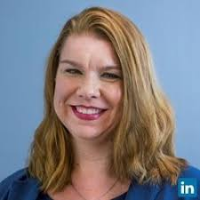What Is a Reverse Mortgage Loan?
A Home Equity Conversion Mortgage (HECM), commonly known as a reverse mortgage loan, is a federally insured home loan that allows borrowers age 62 and over to access a portion of their home equity to supplement their retirement income. Like their traditional cousins, reverse mortgage loans have financial obligations, requirements and qualifications, but repayment is structured differently. Whereas traditional loans require borrowers to make loan repayments each month for a designated period of time, reverse mortgage loan borrowers aren’t required to make monthly mortgage payments, so long as they pay property taxes, homeowner’s insurance and comply with loan terms.1 Instead, non-taxable loan proceeds are made available to the homeowner to use at their discretion, such as paying off other expenses, building up a financial buffer for future unanticipated expenses, or planning for the retirement of their dreams.
How Can a Reverse Mortgage Help with Retirement Planning?
According to American Advisors Group (AAG), there are many features of reverse mortgage loans that can benefit seniors who are looking to supplement their retirement income.
- Eliminate monthly mortgage payments. Rather than paying money to the lender each month, you receive funds to enhance your retirement savings. The loan is repaid when you sell your home, move to another primary residence or when the last borrower leaves the home.
- You remain the homeowner and stay in your home. You maintain ownership of and the title to your home as long as you comply with the terms of the loan.
- How you spend the proceeds of the loan is up to you. The loan proceeds have very few restrictions and can be used to pay for common senior expenses like medical care, in-home care, household repairs and remodeling, or paying off other debt. Disbursement options vary: you choose a full or partial lump sum, monthly payments or a line of credit.
- Social Security, Medicare, your 401(k) and pension are not affected. A reverse mortgage loan is considered a loan and not income, so proceeds are not taxable. However, need-based benefits such as Medicaid and Supplemental Security Income (SSI) may be affected.
How to Qualify for a Reverse Mortgage Loan
There are just a few eligibility requirements to qualify for a reverse mortgage loan.
- The borrower must be aged 62 or older. These loans were designed to help seniors age in their own homes. The borrower’s spouse, however, may be younger than 62.
- The borrower must own the home. The borrower’s name must be on the title, and the mortgage should be fully paid or have a low remaining mortgage balance (up to 50-55 percent of the home’s value).
- The home must currently be and remain the borrower’s primary residence. The borrower must maintain the home as their primary residence by living in the house for a minimum of six months per calendar year.
What Are the Obligations as a Borrower?
A reverse mortgage loan is a loan like any other, and there are terms that must be met by borrowers. You are responsible for paying your property taxes, homeowner’s insurance and home owners’ association (HOA) fees (if applicable), and the home must be well maintained at all times. The loan becomes due and payable when the borrower moves away, passes away, sells the home or defaults under these terms. Proceeds from the sale of the home are then used to repay the loan.
How Does the Government Regulate HECM Loans?
HECM mortgages are strictly regulated by the federal government and include significant consumer protections.
- No pre-payment penalty. Borrowers can repay their loan at any time without incurring additional costs.
- It is a non-recourse loan. The home is the only collateral that the lender may access for loan payoff. If the sale of the home does not cover the entire loan balance, the Federal Housing Administration pays the difference, not the borrower’s heirs.
- Third-party counseling is required. Before borrowers can apply for a reverse mortgage loan, they must participate in a counseling session with an approved U.S. Department of Housing and Urban Development (HUD) counselor.
- A financial assessment will be conducted. To make the HECM an even safer loan product, lenders thoroughly assess borrowers for their ability to meet loan obligations.
- Limited out-of-pocket fees. Borrowers will pay closing costs, lending fees, applicable interest rates and other common loan origination fees but can roll many of these fees into the loan itself.
How to Apply for a Reverse Mortgage
The process to apply for a reverse mortgage begins with a thorough understanding of how a reverse mortgage loan works. Allot as much time as you need to consult with an expert to fully explore this financial tool. Consult with a HUD-approved counselor to begin the application process. A home appraisal is an important component required in the application process. On average, plan approximately two weeks between scheduling the appointment and the appraisal itself. If your loan is approved, allow 72 hours to complete the process and sign the closing documents.
Carefully review the information included in this article, and take the time to determine if a reverse mortgage loan is right for you. Depending on your unique concerns, this may be the answer to your financial planning needs for retirement—as it has been for more than one million other borrowers interested in aging in place and remaining empowered and independent near loved ones and community connections.2
